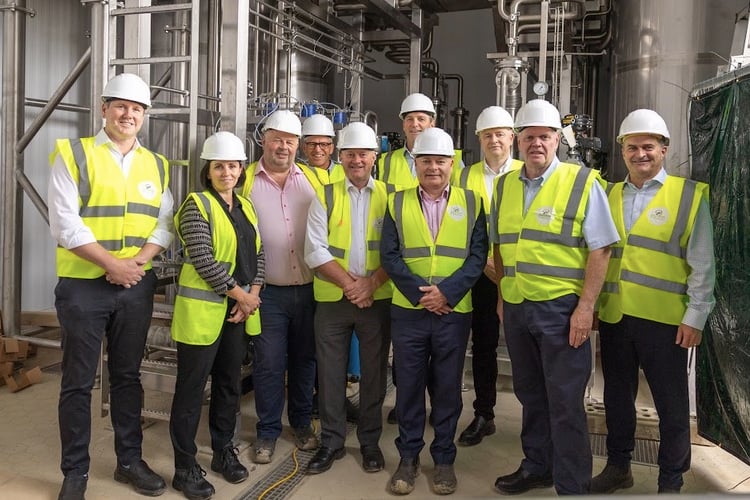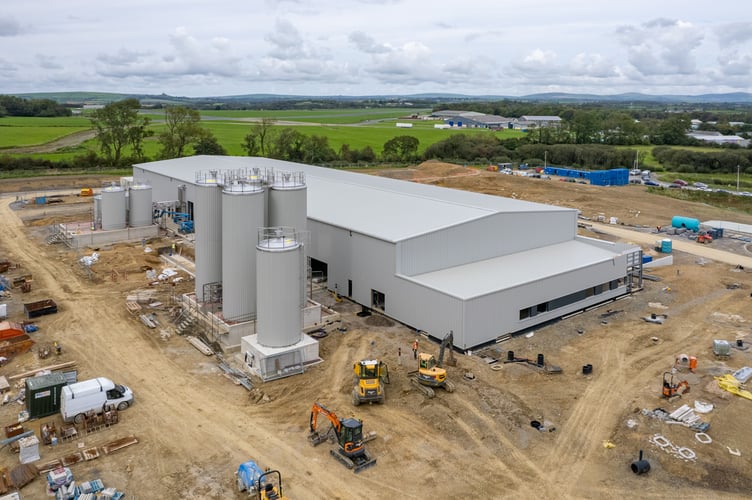A HSBC CEO has visited the site of the new £18m liquid milk bottling facility in Pembrokeshire which will start operation early next year.
HSBC plc Group Chief Executive Noel Quinn visited Pembrokeshire this month to see the results of recent investments made by Puffin Produce and its sister business Pembrokeshire Creamery at their production facilities in Haverfordwest.
With support from HSBC and Welsh Government, Puffin Produce has invested £20m to develop and automate its fresh produce facilities.
These include a new prepared potato processing unit, a state of the art potato and vegetable packing facility and solar energy arrays on all its production buildings.
Set to start operation in early 2024, Pembrokeshire Creamery is a brand new £18m liquid milk bottling facility located on the Haverfordwest Food Park.
It will give UK supermarkets the opportunity to offer their Welsh customers milk that is both sourced and bottled in Wales rather than being transported to England for processing as it is currently, reducing food miles and increasing supply chain efficiency. The facility will create an estimated 60 new jobs in its initial phase.

Allan Wilkinson, Head of Agrifoods at HSBC UK Commercial Bank, said: “Puffin Produce has consistently demonstrated the entrepreneurial spirit that is the backbone of a successful economy.
“HSBC’s purpose is to open up new kinds of opportunities for our customers, and it was fascinating to see how Puffin are using our support to improve efficiencies in processing and supply chains first hand.
“We look forward to continuing our relationship with Puffin Produce, and sister company Pembrokeshire Creamery, as they implement their future growth strategies.”
Huw Thomas, CEO of Puffin Produce and Pembrokeshire Creamery board member, added: “The company’s success is linked to three things: our people, our Welsh farmers, and our ability to invest ahead of our markets. We’re also committed to putting sustainability at the heart of what we do.
“We have recently been named as one of only 4,000 companies in the world to have officially approved net zero targets.
“We work in partnership with local farmers of potatoes, vegetables, and dairy to keep these products local and reduce unnecessary environmental impacts.”





Comments
This article has no comments yet. Be the first to leave a comment.